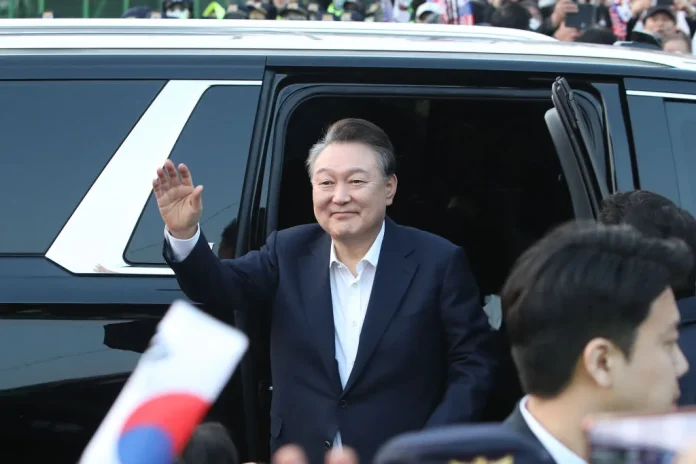SEOUL, April 4: In a historic ruling, South Korean President Yoon Suk Yeol was officially ousted from office on Friday after the Constitutional Court upheld the National Assembly’s impeachment motion against him. The decision stems from Yoon’s controversial and short-lived imposition of martial law last year, which triggered the worst political crisis the country has seen in decades.
The court’s ruling means that a presidential election must be held within 60 days, in accordance with the South Korean Constitution. In the interim, Prime Minister Han Duck-soo will continue serving as the acting president until a new leader is elected and inaugurated.
Acting Chief Justice Moon Hyung-bae, delivering the court’s verdict, stated that Yoon had violated his constitutional duties by exceeding the limits of presidential power. “(Yoon) committed a grave betrayal of the people’s trust who are the sovereign members of the democratic republic,” Moon declared. He emphasized that Yoon’s declaration of martial law led to widespread chaos in society, the economy, and foreign policy, and posed a serious threat to democratic governance.
The eight-member bench of the Constitutional Court reached a unanimous decision on Yoon’s removal from office.
Crowds that had gathered in central Seoul to await the decision erupted into celebration as the ruling was announced. Thousands of demonstrators, many of whom had camped out overnight, chanted “We won!” and waved national flags in jubilation.
This ruling concludes months of political upheaval, which have hindered Seoul’s engagement with the new U.S. administration under President Donald Trump amid concerns over a slowing economy.
Yoon, 64, also faces a criminal trial on charges of insurrection. He made history earlier this year by becoming the first sitting South Korean president to be arrested, on January 15. He was released in March after a court annulled his arrest warrant, but legal proceedings are ongoing.
The crisis originated on December 3, when Yoon declared martial law in response to what he called a need to remove “anti-state” forces and curb the opposition Democratic Party’s alleged misuse of its legislative majority. However, lawmakers defied security forces’ attempts to block access to parliament and successfully voted down the decree within six hours. Yoon later claimed he never intended to fully implement military rule and dismissed the fallout, insisting that no harm was done.
Despite his reassurances, months of nationwide protests ensued, and it remains uncertain whether the Constitutional Court’s verdict will bring an end to the political unrest that Yoon’s actions ignited.

